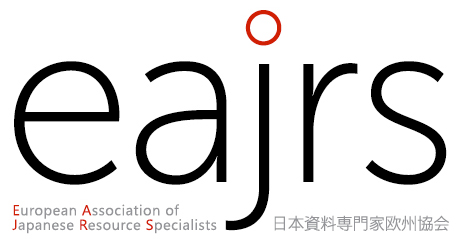Special event preceding the EAJRS Conference, Leiden, September 16-19, 2015
INTERNATIONAL WORKSHOP
“IMAGES OF WOMEN IN THE AGE OF MECHANICAL REPRODUCTION: PRINT CULTURE IN EARLY MODERN AND MODERN JAPAN”
Tuesday, September 15, 2015, Leiden University
Supported by:
The Dai Nippon Printing (DNP) Cultural Foundation, Tokyo
The Stichting Isaac Alfred Ailion Foundation, Leiden
Leiden Institute for Area Studies (LIAS), Leiden
The Heinz M. Kaempfer Fond
| announcement | programme | abstracts |
One widely accepted way to reconstruct the past is to stress narratives of history’s turning points: the singular moments seen as causing massive historical changes. The Battle of Sekigahara of 1600 and the Meiji Restoration of 1868 are commonly perceived as these. However, history’s turning points are not limited to political events: an equally important role is played by technological developments such as printing. The first woodblock printing boom in the seventeenth-century, the introduction of lithography in 1880s profoundly transformed Japan, corroborating Walter Benjamin’s seminal observations on the manifold socio-political consequences of mechanical reproduction. These events serve as benchmarks for the alleged shifts between the pre-modern, the early-modern and modern periods characterized by different political systems, social lives and cultures. Despite the fact that modernities are historical blends (Gluck, 1998), narratives of discontinuity are pervasive. These notions have greatly influenced interpretations of Japan’s visual culture.
This tendency is particularly observable in printed representations of women. Images of women in Japan’s print culture from the seventeenth through the mid-twentieth centuries reveal an astonishing diversity of formats and functions including images of exemplary women depicted in jokunsho (conduct books for women), “portraits” of prostitutes, images of modern girls (moga) endorsing commercial products on posters, representations of “good wives and wise mothers” (ryōsai kenbo) in women’s magazines, images of “beauties” displayed at art exhibitions, and many others. However, printed representations of women have rarely been studied in terms of their common features. Instead, they have generally been divided into different categories enforced by the concepts of “modern”, “early modern” and “pre-modern” informed by discrete conceptual and ideological premises.
This workshop aims at complicating these classifications. It will address the following questions: how have printed representations of women changed, and why? What role has the medium of print as a technological condition played in the processes of representation? What are the consequences of mechanical reproduction for the construction of history? Examination of printed images of women can be a valuable contribution to debates about Japan’s visual culture and historiography for at least two reasons. First, as printing gave birth to a preference for the new and innovative it played a key role in the emergence of modernity (Luhmann, 1992). Second, the female body has been constituted as a site of culturally contested meanings (Butler, 1989), and as such it narrates diverse histories. Through the investigation of printed images of women this workshop will contribute to the current debates about the constructions of history and media-saturated reality.
Confirmed speakers include (in alphabetical order):
- Jaqueline Berndt (Kyoto Seika University)
- Matthi Forrer (National Museum of Ethnology, Leiden)
- Yukihiro Hirayoshi (Kyoto Institute of Technology Museum and Archives)
- Ewa Machotka (Leiden University)
- Masato Naitō (Keio University)
- Sharalyn Orbaugh (University of British Columbia)
- Sabine Schenk (Munich University)
- Sawako Takemura (Leiden University)
All presentations will be given in English.
|
Organizer: Dr. Ewa Machotka Date: 15 September 2015 Time: 9:30-17:00 Venue: LIPSIUS Bldg., Room 147, Leiden University, Cleveringa plaats 1, Leiden Attendance is free but registration is required. Please register by 7 September 2015. Registration/enquiries: Dr. Ewa Machotka e.machotka@hum.leidenuniv.nl |
